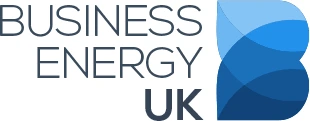Introduction: Why Securing Competitive Energy Rates is Important
For businesses, securing competitive energy rates is crucial to maintaining a low overhead and managing operational costs. With fluctuating energy markets and rising utility bills, businesses must be proactive in sourcing the best energy deals. Competitive rates not only reduce costs but also provide long-term stability and predictability for your business expenses. This guide will explore strategies to secure the most competitive energy rates and reduce overall energy costs for your business.
Step 1: Conduct an Energy Audit

Before securing new energy contracts, it’s important to understand how much energy your business uses and where energy inefficiencies may exist. Conducting an energy audit allows you to identify opportunities for reducing consumption and cutting costs. By reducing your overall energy use, you can also negotiate better rates based on lower consumption.
Key Steps in an Energy Audit:
- Data Collection: Gather information on your energy use from bills, meters, and building systems.
- Identify Inefficiencies: Look for areas where energy is wasted, such as outdated equipment or inefficient lighting.
- Energy Savings Opportunities: Based on the audit, prioritize energy-saving upgrades, like installing LED lighting or upgrading HVAC systems.
By switching to a new supplier, businesses can often find more competitive rates, new incentives, or better terms that fit their energy needs.

Topics Covered
- Introduction: Why Securing Competitive Energy Rates is Important
- Step 1: Conduct an Energy Audit
- Step 2: Compare Business Energy Suppliers
- Step 3: Understand Fixed-Rate vs. Variable-Rate Contracts
- Step 4: Timing Your Contract Renewal
- Step 5: Negotiating Energy Contracts
- Step 6: Utilize Energy Brokers for Better Rates
- Conclusion: Maximizing Energy Savings by Securing Competitive Rates

Step 2: Compare Business Energy Suppliers
Different energy suppliers offer different rates and contract terms, so it’s important to compare multiple suppliers before committing to a contract. Use energy comparison websites or work with an energy broker to explore available offers and see which suppliers are offering the most competitive rates.
What to Compare:
- Unit Rates: Compare the price per kilowatt-hour (kWh) offered by each supplier.
- Standing Charges: Some suppliers charge daily or monthly fees just for being connected to the grid.
- Contract Length: Compare the contract terms, as longer contracts may lock in rates but reduce flexibility.
Step 3: Understand Fixed-Rate vs. Variable-Rate Contracts
Businesses typically have two options when choosing an energy contract: fixed-rate and variable-rate contracts. Understanding the differences between these options can help you choose the most cost-effective solution.
-
Fixed-Rate Contracts:
• Stability: Fixed-rate contracts lock in the price for energy over a set period, protecting your business from market fluctuations.
• Budgeting Certainty: With a fixed rate, you can predict energy costs over time, making budgeting easier.
-
Variable-Rate Contracts:
• Flexibility: Variable-rate contracts allow energy prices to fluctuate based on market conditions. You may save money when prices are low, but face higher bills during peak periods.
• Risk: This option exposes your business to potential price spikes, so it’s best for businesses with a higher tolerance for risk.
Step 4: Timing Your Contract Renewal
When you sign your energy contract can have a big impact on the rates you secure. Energy prices tend to fluctuate throughout the year due to seasonal demand, market volatility, and geopolitical events.
Tips for Timing:
- Avoid Peak Periods: Energy prices tend to be higher in winter and summer due to increased demand, so consider negotiating during off-peak periods.
- Monitor Market Trends: Keep an eye on energy market trends to see when prices dip, and renew your contract at the most opportune time.
Step 5: Negotiating Energy Contracts
Don’t be afraid to negotiate with energy suppliers for better rates and contract terms. Suppliers are often open to negotiation, especially if you’re a large business or have multiple locations.
Negotiation Tips:
- Get Multiple Quotes: Use quotes from other suppliers as leverage during negotiations.
- Negotiate Beyond Rates: In addition to negotiating lower rates, ask for more flexible contract terms, reduced standing charges, or incentives like free energy audits.
- Understand Contract Flexibility: Look for flexible contract clauses that allow for renegotiation or termination without heavy penalties if market conditions change.
To mitigate these risks, consider working with an energy broker who can help you navigate the complexities of switching suppliers.
Step 6: Utilize Energy Brokers for Better Rates
If the energy procurement process feels overwhelming, consider working with an energy broker. Brokers have in-depth knowledge of the energy market and relationships with multiple suppliers, allowing them to negotiate better rates on your behalf.
Benefits of Energy Brokers:
- Access to Exclusive Deals: Brokers often have access to special deals or packages that aren’t available directly to businesses.
- Market Expertise: Brokers understand market trends and know when to secure the best deals.
- Look for Added Value: Beyond lower rates, ask about added value services such as energy management tools, usage reports, or customer service guarantees.
- Time Savings: Brokers handle the comparison, negotiation, and procurement process, saving your business valuable time.
Conclusion: Maximizing Energy Savings by Securing Competitive Rates
Securing competitive energy rates is a critical step in reducing operational costs and improving the financial health of your business. By conducting energy audits, comparing suppliers, negotiating contracts, and working with brokers, businesses can optimize their energy costs while ensuring long-term stability. The key is to stay proactive, regularly assess the energy market, and choose the contract options that best fit your business needs.
Insight from UtilityKing
At UtilityKing, we help businesses secure competitive energy rates through tailored solutions and expert negotiation. Our team ensures that you get the best deal, reducing energy costs and improving efficiency across your operations.
